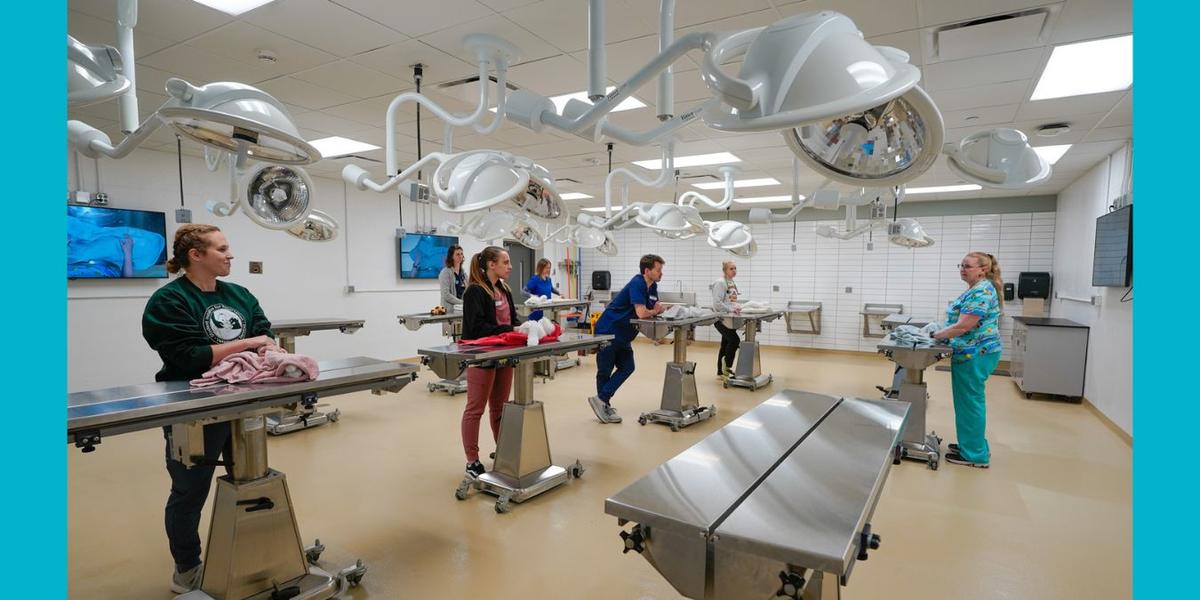Elevating education
First phase of Transformational Learning Corridor remodel complete, opens to students

First phase of Transformational Learning Corridor remodel complete, opens to students
College of Veterinary Medicine DVM students stand in the new Veterinary Skills Laboratory for a session on bandaging led by veterinary technician Dana Emerson (far right).
Competence and confidence in clinical and surgical skills are critical to the success of all students of veterinary medicine. A new learning environment in the College of Veterinary Medicine (CVM) will be key to helping students achieve that success.
The Transformational Learning Corridor (TLC), a dedicated, modern space that gives students convenient access to experiential learning opportunities, is taking shape in underutilized space near the College’s current clinical skills and junior surgery suite.
The project seeks to create a welcoming and accessible area where students can practice clinical and technical skills on their own time at their own pace. When complete, the TLC will include an enhanced skill laboratory and practice zone as well as a new dedicated space for a student surgery suite.
“So much of learning how to do a skill is repetition, and we all know, whether we're driving a car or riding a bike, how important practice is to really nail the skill down,” says Sally Lightner, education program associate and lab services coordinator. “Students need an area and supplies to be able to practice the skills they’ve learned in labs.”
The first phase of the TLC project wrapped up this summer and an open house event in August welcomed CVM community members to explore the new space. The event was hosted by the Teaching Technician Team, a group of teaching staff that support the skills labs in the first through third year of the veterinary curriculum.
The remodel allows CVM to bring one of its most important clinical and surgical skills training programs, the spay/neuter program for fourth-year students, back to campus. Previously, the program was housed in Golden Valley, Minn., in partnership with the Animal Humane Society.
A new dedicated space for the program lets students gain valuable surgical experience in a familiar environment without the hassle of traveling to and from campus. The space includes expanded supply storage, new kennel areas for canine and feline patients, and access to a student surgical suite.
Down the hall, the newly constructed Veterinary Skills Laboratory features state-of-the-art lighting and equipment. New equipment includes an overhead camera, large monitors, and an audio system that can immerse multiple students in a learning experience even when not in direct contact with a patient.
A short walk away in the refreshed Practice Zone, students have access to large and small animal simulation models that provide skills and surgical practice.
The remodel’s first phase has laid the groundwork for additional improvements the College plans to make to the space. Future phases will include updates to the student surgery suite as well as a mural planned for the hallway in that area, which will use a community-engaged design and creation process.
With all the changes in place and coming, Lightner hopes to see the TLC become a hub for student learning and collaboration.
“I'd love to see it as the place to be where students are motivated to practice skills, discuss case scenarios, and hang out,” she says.